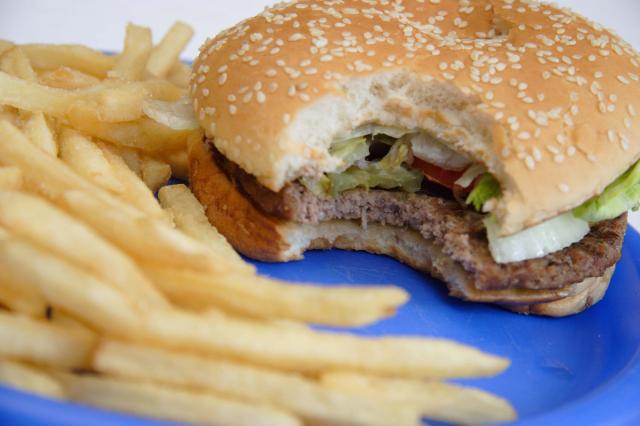What Are The Causes Of Weight Gain And Obesity?
Obesity is one of the greatest health problems in the universe. It is associated with many other diseases which are combined to wipe out millions of people yearly. Diseases like diabetes, stroke, cancer, cardiovascular disease, high blood pressure and so on.
While you maintain regular exercise and healthy diet in a bid to achieve weight loss, there are still a number of factors that can bring about weight gain, many of which are beyond your control.

However, there is no cause for alarm as ways to improve each of them have been taken care of in this write up.
Below are the leading causes of weight gain and obesity:
Genetics
Obesity, a deadly health problem, has a strong genetic component. Children of obese parents are more likely to become obese than those of lean parents. However, this does not imply that obesity is absolutely predetermined. Studies revealed that people from non industrialized societies quickly turn out to become obese at the point when they started consuming a typical western diet. Their genes remain unchanged. However, the environment as well as the signals they sent to their genes changed. Hence, it was concluded that our susceptibility to weight gain is a result of our genetic components.
Junk foods
Many foods today contain a bunch of chemicals, coupled with little refined ingredients. Junk food manufacturers produce hyper-palatable foods and ensure people purchase and consume them again and again. These food cause weight gain and obesity.

Food addiction
Junk foods are capable of causing full-blown addiction in susceptible people. Individuals who are addicted to food normally lose control over their eating behavior, causing eating disorder.
Food addiction is a complex issue, having a biological basis, which may not be easily overcome. A person who is an addict will quickly lose his or her freedom of choice. This wrong eating disorder will definitely result in weight gain.
Insulin
This is a vital hormone in the body that regulates the storage of energy and performs other important functions. Junk foods resist the performance of insulin in many people. This condition makes energy to be selectively stored in the fat cells rather than making it available for use.
Insulin can be best lowered by reducing the consumption of carbohydrates leading to reduction in calorie intake and subsequent weight loss.
Medications
Certain pharmaceutical drugs are able to cause and accelerate weight gain as a side effect. Such medications like anti-depressants, diabetes drugs, anti psychotics, to mention a few. They contribute to weight gain by altering the functions of the body and brain and making them to selectively store fat rather than burning it.
Leptin
Leptin is another hormone that plays a sensitive role in weight gain and obesity. Produced by the fat cells, leptin functions by sending signals to the hypothalamus (the brain part that controls food intake) that we need to stop eating because we are full.
People who are obese have a great deal of leptin and fat in them. However, the leptin in their system is not working properly as it ought to; hence, the brain becomes resistant to it (leptin resistance). This is a leading cause of obesity.
Lost of body nutrients
Deficiency of magnesium, iron and vitamin D can alter your immune system, drain your energy levels and alter your metabolism, thereby making it difficult to embark upon healthy lifestyle.
Ageing
This is an unavoidable condition. As you grow older, the rate of your metabolic activities begins to slow down. This is true since between 40-50 years of age, the body doesn’t burn as many calories compared to when it was 20. Hence, to keep metabolism going, the body requires more exercise and less food to keep its metabolism going. When your metabolism slows down, you will gain weight.
Over-eating healthy foods
A number of healthy and nutritious foods may result in weight gain when consumed in excess. Examples are avocados, dark chocolate, oatmeal, nut and nut butter, quinoa, etc. except your meal is fruit or vegetables; never assume that your healthy food is low in calories. Also, eat small portion size of food if you desire to achieve your weight loss goal.
Dehydration
Research has revealed that drinking two glasses of water prior to a meal could aid weight loss, while drinking insufficient water can bring opposite effects on peoples. Not drinking enough water can make you consume excess calories which could result in weight gain. In addition, dehydration will make your body to conserve water for important functions, the result of which can cause water retention and hence, weight gain. Sip continuous water throughout the day.
Ignoring the scale
A lot of people avoid the scale because they do not wish to know what their weight reads. This is why they get into trouble. This behavior is usually very common especially during the winter months when many individuals seem to patronize comfort food. The fact remains that if you want to shed extra ponds, you need to increase your daily physical activity and monitor your weight on the scale every week.
Insufficient rest
The place of sleep in weight loss is very crucial. Healthy needs and exercise efforts will be negated and frustrated if you ignore this important area. According to research, lack of sleep leads to increased levels of ghrelin (hunger hormone) and decreased level of leptin (satiety hormone). Studies have also revealed that depriving the body of sleep causes response of the brain to junk food and its inability to engage in controlling food portions.
Insufficient consumption of protein
There are two essential reasons for consuming sufficient protein. It is satiating and prevents overeating. Furthermore, protein helps in the maintenance of lean body mass. Insufficient consumption of protein result in unhealthy cells and muscles, making the body to break down muscle to access the nutrients it needs. This is dangerous because lean body mass implies a slower rate of metabolism. With time, this condition can result in weight gain.
Depression
Numerous people engage in emotional eating as a way of comfort. This eating disorder is a response to depression and an attempt to fill the vacuum in your life via food. The result is weight gain.
Diseases and lack of exercise
Some diseases can result in weight gain. Examples are liver, heart and kidney diseases. In addition, many people have stopped exercise due to their busy schedule, and this has result in weight gain. Exercise helps in stress relief and sleep improvement. No physical activity should be ignored. Examples are walking, running, strength training, weight lifting, cardiovascular exercise, etc.